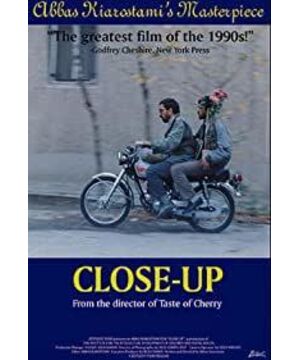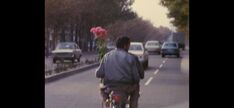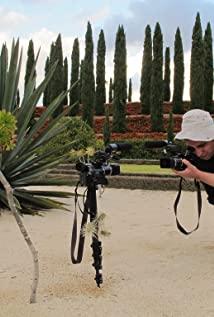Jean-Luc Godard once said: "The film begins with Griffith and ends with Abbas Chiarusdami." Few contemporary directors can use the most simple lenses and pictures like Abbas. It expresses the most primitive aspects of human nature and life; and there are very few directors who have their own unique style and the coexistence of simple language and the deepest emotions of human beings like his works can be photographed. Abbas' films don't say anything in general, but they convey the deep meaning that the film is intended to show in a very realistic or very original state, that is, his works allow the audience to see the most important part of the film. On the simple and most profound side, ordinary passages inadvertently exude infinite emotion and care. The influential director in Iran emphasized the reductive nature of images to life, and also faced the fictional nature of film creation. He broke the boundaries between realism and stories, which not only enriched the language of the film, but also caused some critics to return to Pakistan. In the question "What is a movie?" asked by Zan. Abbas continued to use and develop such a method of combining real and virtual, starting from his favorite work to date - "Close-Up" (Close-Up). Based on a real news report, the film tells the story of a poor man (Hashan Xia Ji'an) who loves movies, because he succeeded in getting himself on the bus to be believed by Mrs. Ahan Heng to be the famous director Mark Malbaf, so he continued to play the role. For this role, he went to A Hanheng's house for food and accommodation, asked for money from A Hanheng's family, and even "camera" in the family, preparing to make Ahanheng's son the protagonist of his next movie. In the end, Hassan Xajian was suspected by Ahanhen's family for not knowing that Marc Malbaf's film won an award at the Italian Film Festival, and "Sorush" reporter Hossain Farazmand followed the two police forces who went to capture Hassan Xajian and reported on the circumstances of his arrest. Abbas's "Close-Up", which uses a documentary-like filming method, visited the real Ahanhen family, visited the detained Hassan Xia Ji'an, and placed two cameras in the real court to film the process of the interrogation ; It allows all the real "parties" to reproduce the whole incident through video, and in the bus where Hassan Xia Ji'an and Mrs. A Hanheng met for the first time, the two re-enact the case, combining the real with the "ambiguous relationship of performance". "Rise to the extreme. Perhaps when the audience sees that Mrs. Ahanheng can't tell who the real Mark Malbaf is, we also confuse the difference between life and "play", and "Close-Up", a half-documentary, half-plot film, is exactly the same. In the form of false and true, it forms a wonderful echo with the relationship between cheating and being cheated, acting and reality discussed in the content. Some critics believe that Abbas's creation seems to be the best comment on the documentary aesthetics that the film is a "recovery of material reality". His documentary style helps to remove unnecessary sensory interference, so that the audience can focus on the characters in the play. And the event itself, so that although the film does not use any close-up or enlarged face shots, the audience is still very close to the protagonist's heart. In the most important passages of the court trial, Hasan Xia Ji'an's self-defense is so real that we can empathize with it, and also lead us to follow his words to experience the difficulties of his existence. This is a real "close-up", through avoidance The image language of any visual means captures the undisguised soul of a person. In Abbas's simple and simple films, the camera will not be placed "high above the ground". For example, Hassan Xia Ji'an said in court that he played Mark Malbaf and the Ahanhen family to go to the cinema to watch a movie, just hoping to be with him The audience is in an "equal" position, facing the pain in life together. Hasan Xia Ji'an, who experienced unemployment and failed marriage, explained that when he asked for money from Ahan Heng's family, he did not think it was a fraudulent act. After he left Ah Hanheng's house, he continued to gain a certain degree of self-confidence and continued to complete his role-playing; and the so-called "deception" was actually a means to make the unreal become more real, just like this film that challenges the documentary format. , although there are elements of "deception" (for example, the sound of the final scene in the film is intermittent, making the audience mistakenly think that there is a problem with the recording equipment), but because this method effectively reduces the "drama", it can be more presentable. The "true" taste of the movie. In the "Close-Up" involving class contradictions and moral disputes, whether the accused Hasan Xia Ji'an, or the plaintiff A Hanheng's family, hope to escape the difficult reality through "movie". This reveals that after the Iranian Revolution, the people are still under the pressure of heavy living burdens, and even the slightly wealthy intellectuals (such as the Ahan Heng family) seem to see no way out in the future. On the surface, the film revolves around a fraud case, but the actual spiritual story about people's desire to be respected makes the audience more touched. Abbas, who is far-sighted, does not want to conclude whether "fraud" is a crime. He uses the "movie" that the deceiver and the deceived commonly love as an incision to see through the pains faced by both sides, and also tells the story. We know that both sides are victims within problem societies. The circular structure in the front and rear of the film begins with a conversation between reporters who are in the same car with two police forces and the driver who is carrying them. When the reporter followed the police into Ah Hanheng's house to arrest Hassan Xia Ji'an, the camera only showed the driver who was waiting outside. As for the situation inside the house, it was not explained until a later paragraph. It is worth noting that before the police force entered Ahan Heng's house, the driver learned that the birthplace of one of the police forces was where he served; and the place where the police force is now is the birthplace of the driver. This "exchange of fate" has a subtle connection with the exchange of different subjects on the same timeline. According to Abbas, the driver looked at the air tank that was rolling down the road, which was misinterpreted by some people as a symbol of Hassan Xia Ji'an, but in fact the "flowers" that appeared in the movie for a short time, I think it was the A symbol representing the protagonist. Please don't forget that the first appearance of "flowers" was picked from the pile of dead leaves (the contrast between dead leaves and flowers), just like Hasan Xia Ji'an who was just arrested. He was still very calm until this result (the flowers were still open); after the Ahanhen family dropped the prosecution and Hasan Xia Ji'an was released, because he regained his freedom and regained his life, he was sent away. The potted flowers for the Ahanhen family were also particularly striking or prominent on the motorcycle. Abbas, who should focus on restoring the reality of life to the language of images, does not mean that he does not pay attention to the composition of the picture. In the scene before Hasan Xia Ji'an was arrested, we saw a shot that passed through the living room of A Hanheng's house to the room, and captured the layered structure and depth of the house to express the gradually aware of the protagonist. Bad situation, and some deep thoughts in my mind. A really good director will use the camera to speak, this scene from Hasan Xia Ji'an's doubts to his arrest, the film does not say a word, but at this time silence is better than sound, so that the audience can see through such a calm picture, but can completely understand the heart of the protagonist God is restless. "Close-Up" "wobble" between documentary and drama genres, just as Hassan Xia Ji'an confused his identity in the process of playing Mark Malbaf, who answered in court that he is now playing himself, proving It was finally liberated. Recalling the conversation between Hassan Xia Ji'an and Ahan Heng, he quoted a verse ("You can't see it in person, because no matter how much you look into my soul, you have disappeared") to illustrate that people hide themselves unconsciously , and Abbas's "Close-Up", as he said, is a film that is in close contact with Dostoyevsky's works, a film about people's suffering and focusing on the depths of people's hearts. He uses unpretentious images to rescue the blocked souls, just as Hasan Xia Ji'an likes to walk into the mountains and blend in with nature, so that he can get spiritual purification there, and also allows him to face back to himself there.
View more about Close-Up reviews








